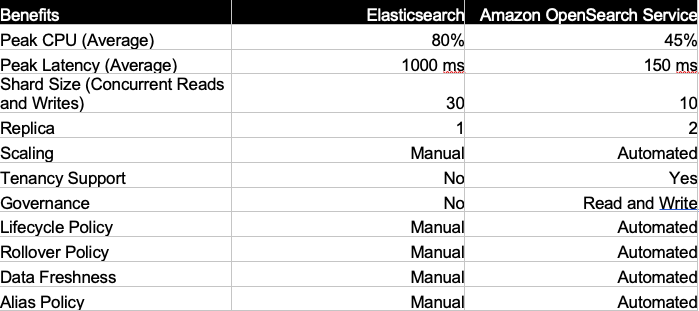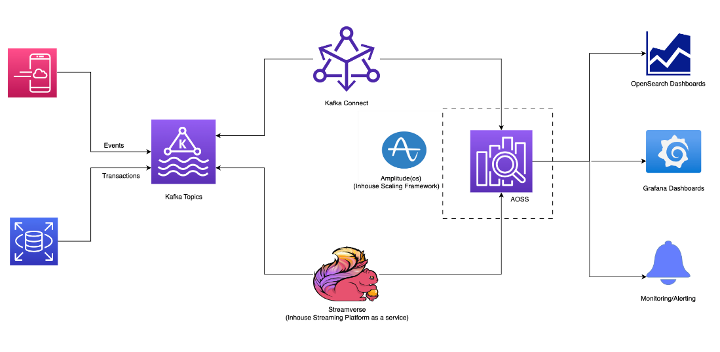- Solutions›
- Customer Stories›
- Dream11

Upping Performance by 40% and Optimizing Cost Using Amazon OpenSearch Service with Dream11
Learn how Dream11 serves over 200 million online gamers by reimagining its analytics workloads using Amazon OpenSearch Service.
Key Results
Overview
As an extremely popular global fantasy sports platform, Dream11 provides players with near-real-time updates and recommendations based on the statistics of real athletes. The management of its Elasticsearch clusters had become costly and complex, and engineers spent hours scaling manually to accommodate fluctuating data volumes. When Elasticsearch announced the sunsetting of its open-source distribution, Dream11 researched other options to power the search and analytics engine that is critical to its business.
Dream11 chose to adopt a solution managed by Amazon Web Services (AWS) so that it could run and scale clusters without having to worry about managing, monitoring, and maintaining the infrastructure. It migrated to Amazon OpenSearch Service, an open-source, distributed search and analytics suite derived from Elasticsearch. Working alongside AWS experts to fine-tune its compute infrastructure, Dream11 significantly optimized costs, boosted performance by 40 percent, and built an enhanced experience for its 200 million users.
Opportunity | Using Amazon OpenSearch Service to Manage Search and Analytics for Dream11
Solution | Improving Cluster Performance by 40 Percent While Significantly Optimizing Compute Costs
For the migration, Dream11 received support and guidance from AWS experts who helped optimize cluster configuration, performance, and security based on operational metrics and best practices. For example, Dream11 implemented Amazon EC2 instances powered by AWS Graviton Processors, designed by AWS to deliver the best price performance for cloud workloads running in Amazon EC2. Using AWS Graviton processor–based instances, Dream11 improved cluster performance by 40 percent while using 30 percent fewer nodes. The company optimized compute costs significantly.
Dream11 engineers no longer need to add up to 100 instances to handle peak demand. Instead, they scale vertically, using the more powerful processors to distribute CPU utilization more uniformly among fewer machines. “We realized that we were getting better performance using the AWS Graviton processor–based machines specific to OpenSearch, which are built for the search engines,” Batra says. “Our CPUs are more stable.”
Even at a peak of 40,000 concurrent queries, players no longer experience time-outs or long delays. Previously, Dream11 analysts, data scientists, or product teams sometimes had to wait up to 10 seconds for data to refresh. Now, every query returns results within 150 milliseconds of latency, which has made it about 98 percent quicker for internal users to see updated statistics.
Figure 1: Comparison of Dream11’s use of Elasticsearch and Amazon OpenSearch Service

Figure 2: Dream11 architecture diagram

Outcome | Enhancing the Internal User Experience Using OpenSearch Functionality
To further enhance the internal user experience and generate analytics to drive business outcomes, Dream11 plans to implement additional features of OpenSearch. For example, OpenSearch’s Machine Learning Commons library provides algorithms to train models and predict trends in data. Dream11 will also use machine learning for anomaly detection, a feature of OpenSearch that automatically detects anomalies as the system ingests data and then uses the alerting functionality to send notifications in near real time. “We chose Amazon OpenSearch Service for the perks of OpenSearch with the robustness of automatic updates, managed scaling, and AWS community support,” Batra says. “Now, our data analysts and scientists happily live with their data and dashboards.”
About Dream11
The flagship brand of leading Indian sports technology company Dream Sports, Dream11 is a fantasy sports platform with more than 200 million users playing 11 sports on the app.